Artificial Intelligence (AI) is revolutionizing various industries, and web development is no exception. AI-powered tools and techniques are enhancing the way websites are built, maintained, and optimized. From automating repetitive tasks to personalizing user experiences, AI is changing the landscape of web development in exciting ways. In this blog post, we’ll explore the top 10 ways AI is being used in web development in the United States.
How Is AI Used In Web Development?
AI (Artificial Intelligence) is playing an increasingly significant role in web development, transforming the way websites are created, managed, and improved. Here are several key ways AI is used in web development:
Chatbots for Customer Support:
Chatbots powered by AI are becoming increasingly common on websites. They can provide instant responses to user inquiries, offer assistance, and even collect user data for further analysis. These chatbots improve user engagement and satisfaction by providing quick and relevant answers 24/7.Tools like Chatfuel and Dialogflow can help developers create and integrate AI chatbots seamlessly.
Content Generation:
AI-driven content generation tools can assist web developers in creating blog posts, product descriptions, and other textual content. These tools analyze existing content and generate high-quality, human-like text, saving time and effort in the content creation process. Tools like GPT-3 by OpenAI and Copy.ai are excellent options for automating content creation.
User Experience (UX) Enhancement:
AI algorithms can analyze user behavior, such as mouse movements and click patterns, to optimize website layouts and designs. Consequently, by understanding how users interact with a site, developers can make data-driven decisions to improve the overall user experience. Notably, tools like Hotjar provide heatmaps and user recordings to help developers make data-driven decisions.
Personalization:
AI can analyze user data and behavior to deliver personalized content and recommendations. This enhances user engagement and encourages longer visits to websites. Personalization can be particularly effective in e-commerce, news, and entertainment websites. Tools like Dynamic Yield and Adobe Target specialize in personalizing user experiences.
SEO Optimization:
AI-powered SEO tools can analyze keywords, backlinks, and website performance to provide recommendations for improving search engine rankings. These tools help web developers ensure that their websites are easily discoverable by search engines. Tools like SEMrush and Ahrefs are popular choices among web developers.
Image and Video Processing:
AI can be used to automatically tag, optimize, and resize images and videos, improving website load times and user experience. Additionally, AI-driven image recognition can enable features like facial recognition and object detection. Tools like Cloudinary and ImageKit offer powerful image and video optimization capabilities.
Security Enhancement:
AI plays a crucial role in identifying and mitigating security threats. It can monitor website traffic for suspicious activities and help protect against DDoS attacks and other cyber threats. AI-driven security tools provide real-time threat detection and response. Tools like Imperva and Cloudflare use AI to monitor website traffic and protect against cyber threats.
A/B Testing and Conversion Rate Optimization:
A/B testing is a common technique used to optimize website elements like headlines, call-to-action buttons, and forms. AI can automate A/B testing and analyze the results to determine which variations perform best, leading to improved conversion rates. Tools like Optimizely and Google Optimize provide robust platforms for conducting experiments and analyzing results.
Content Recommendation Engines:
Websites often use AI-driven recommendation engines to suggest content based on user preferences and behavior. These engines enhance user engagement and can increase the time users spend on a website. Tools like TasteDive and RecSys are useful for implementing recommendation systems.
Predictive Analytics:
AI-powered predictive analytics can help web developers anticipate user behavior, traffic patterns, and trends. By analyzing historical data, developers can make informed decisions about content, design, and marketing strategies. Tools like Google Analytics and Mixpanel offer features for predictive analytics and user insights.
How Web Developers Can Use AI Effectively
While AI offers immense potential for enhancing web development, it’s crucial for web developers to use these technologies effectively. Here are some tips for web developers to make the most of AI in their projects:
Select the Right AI Tools:
Choose AI tools and platforms that align with your project’s goals and requirements. Consider factors such as ease of integration, scalability, and the availability of APIs and documentation. Research and test different tools to find the ones that best suit your needs.
Understand the Data:
AI algorithms rely heavily on data. Ensure you have clean, relevant, and structured data to train and feed into AI models. Data quality is a critical factor in the success of AI-driven solutions.
Customization and Training:
Many AI tools allow for customization and fine-tuning of algorithms. Take advantage of this by training models with your specific data to make recommendations and predictions more accurate and tailored to your audience.
Regular Maintenance:
AI models require regular maintenance and updates. Monitor their performance over time and retrain them as needed. Staying up-to-date with the latest AI advancements is essential to ensure your AI solutions remain effective.
Ethical Considerations:
Be mindful of ethical considerations when implementing AI. Ensure transparency in how AI is used on your website and respect user privacy. Avoid biases in AI models that could result in discriminatory outcomes.
User Testing:
Before deploying AI-driven features to a live website, conduct thorough user testing. Gather feedback from real users to identify any issues or areas for improvement. AI should enhance, not detract from, the user experience.
Stay Informed:
AI is a rapidly evolving field. Stay informed about the latest AI trends, best practices, and emerging technologies. Engage with the AI community through conferences, webinars, and online forums to expand your knowledge.
Collaborate:
Consider collaborating with AI specialists or data scientists to leverage their expertise. Building a multidisciplinary team can help ensure that AI is integrated effectively into your web development projects.
The Role of AI in Web Development: Augmentation, not Replacement
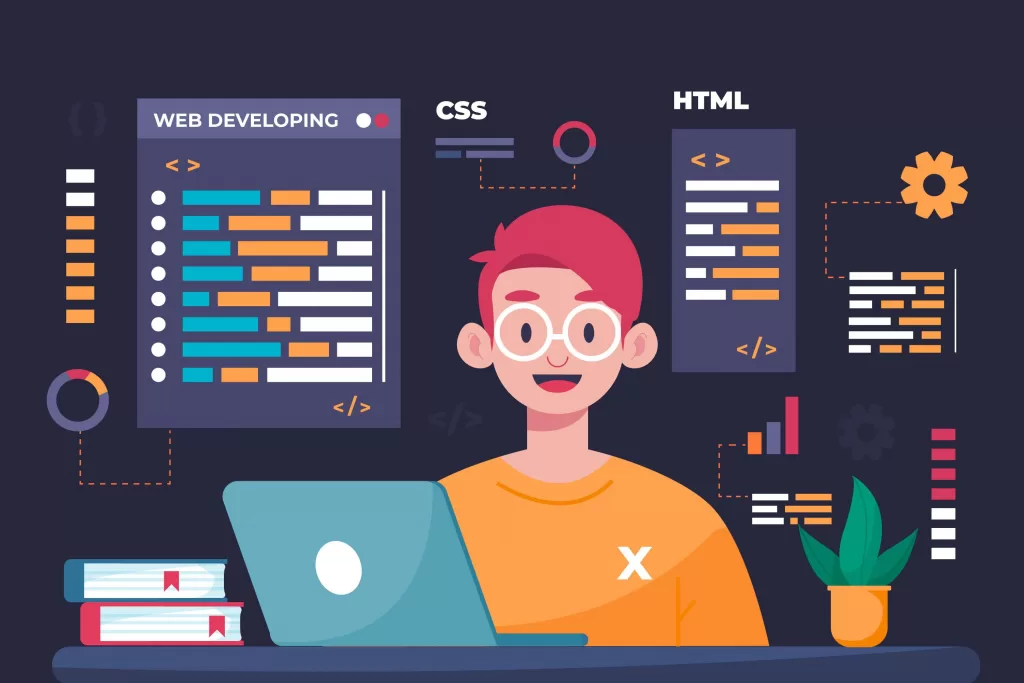
AI is unlikely to completely replace web developers, but it will significantly influence the field. Here are five main points explaining why AI won’t replace web developers:
Complex Problem Solving:
Web developers possess the art of innovation, combining creativity and technical knowledge to devise groundbreaking solutions that reshape digital landscapes. AI, in contrast, follows patterns and lacks the inventive flair of human developers.Human web developers excel at tackling challenges that seem insurmountable. Their ability to think outside the box allows them to find solutions where predefined algorithms fall short, making them indispensable in complex web projects.
User-Centric Design:
Crafting a user-centric design is as much about understanding emotions and empathy as it is about aesthetics. Human designers can tap into emotional nuances and cultural factors, creating web experiences that resonate deeply with users. Human designers are storytellers, weaving narratives through web interfaces. They engage users not just visually but emotionally, making websites more than functional tools; they become immersive experiences.
Adaptation and Learning:
Web developers’ ability to adapt to the ever-evolving tech landscape is a testament to human adaptability. Learning new languages, frameworks, and tools is a hallmark of their profession, keeping them at the forefront of innovation. In rapidly changing environments, web developers demonstrate agility in problem-solving. They don’t just apply existing solutions; they invent new ones to address emerging challenges, ensuring websites remain cutting-edge.
Creativity and Innovation:
The spark of inspiration that drives innovation is uniquely human. Developers harness their creativity to devise original concepts, pushing the boundaries of what’s possible in web design and functionality. True innovation often involves breaking conventions and thinking beyond established norms. Web developers are pioneers in this regard, pushing the envelope to deliver novel web experiences.Human Interaction and Collaboration:
Developers act as bridge builders between technology and human needs. Their capacity to comprehend and communicate clients’ visions while collaborating effectively with AI systems makes them integral to project success. Human developers establish empathetic partnerships with clients and stakeholders. They not only listen to feedback but also understand the underlying needs and aspirations, resulting in web solutions that resonate on a human level.
Future of AI in Web Development
The future of AI in web development is promising, bringing transformative changes as AI technologies advance. In the coming years:
- Websites will offer hyper-personalized experiences, adapting content, layout, and interactions to individual user preferences through AI-driven algorithms.
- Voice search and natural language processing will become more prevalent, enhancing user interactions through AI-driven voice assistants.
- AI will automate web development tasks, including complex code generation, reducing errors and speeding up application development.
- Visual content will see improved rendering and customization, with augmented and virtual reality elements integrated seamlessly into websites.
- AI-generated content will closely mimic human-created content, providing highly engaging and relevant material.
- Cybersecurity measures will benefit from AI, with advanced algorithms identifying and responding to threats in real-time.
- Testing and quality assurance processes will become more efficient thanks to AI-powered tools, reducing the likelihood of user-facing issues.
- Cross-platform optimization will ensure websites perform consistently across various devices and screen sizes.
- Accessibility features will advance, making websites more inclusive for users with disabilities through automated alt text generation, improved screen readers, and real-time content translations.
- Continuous learning will be essential for web developers to stay updated on the evolving landscape of AI in web development, embracing the latest trends, tools, and best practices.
Also read: “Top 9 Generative AI Applications and Tools“.
Conclusion
AI is transforming the field of web development in the United States and around the world. By harnessing the power of AI, web developers can automate tasks, enhance user experiences, improve security, and optimize websites for better performance and engagement. As AI technology continues to advance, its role in web development will only become more prominent, shaping the future of online experiences. Integrating AI into web development practices can give businesses a competitive edge by delivering more efficient, personalized, and secure websites for users.







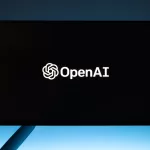
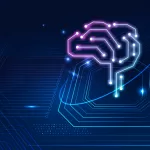
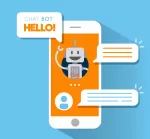
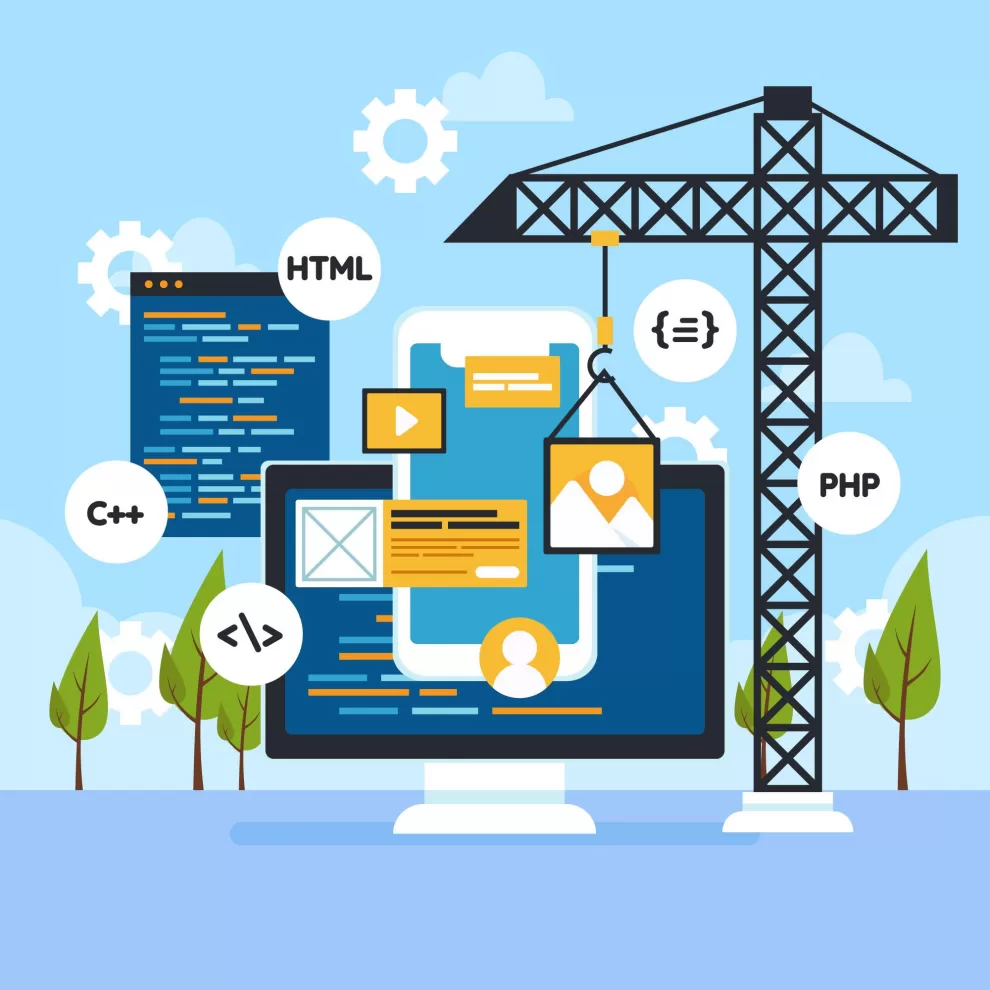















Add Comment